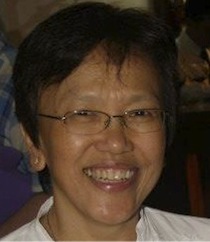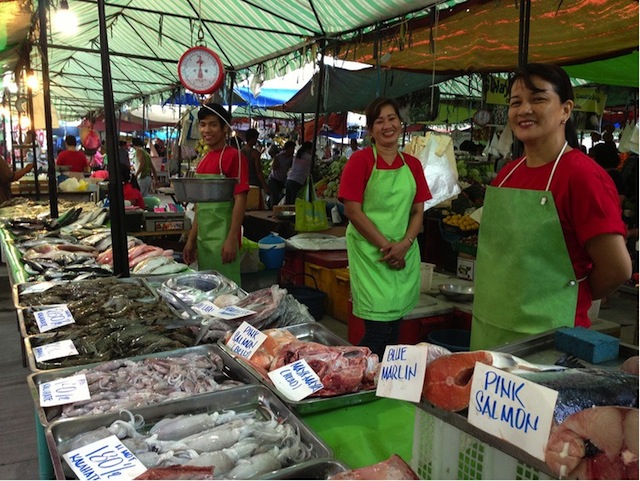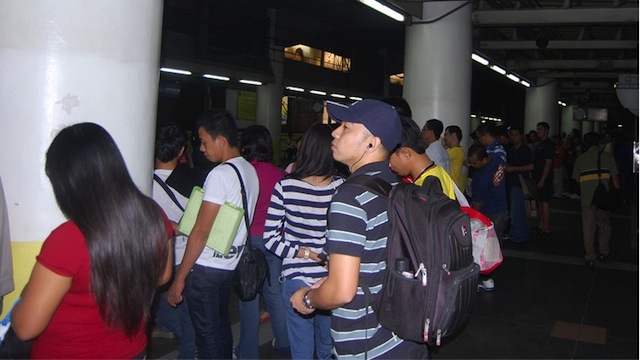SUMMARY
This is AI generated summarization, which may have errors. For context, always refer to the full article.

I lived in Stockholm, Lund, London, Boston, New York, Kuala Lumpur and Bangkok during different periods of my life. Living in a place meant getting a social security number and a work- or student visa, renting an apartment and leasing a car. The years I spent in these places add up to 23, which is a short time compared with the years some balikbayans have spent abroad, like those who ask about “Highway 54,” which I always knew as EDSA.
So every time I come home, I start all over again: Get an apartment, open a bank account and secure all those things I need to be able to function efficiently in a city like Manila. This has its pleasures and challenges.
Buying a condo
When I decided to buy a condo, I looked at two factors: location, i.e., proximity to my sources of income, food, pleasure and transportation; and developers, i.e., the construction company, structural engineers and architects under the overall management of a reputable real estate firm.
Earthquakes and powerful winds are major threats to living in any building that rises above two floors. I wanted to live on the 49th floor of a 60-story building, so I exercised due diligence. I checked track records of the structural engineers, architects and the real estate firm. I dug deep into the website of the Philippine Institute of Volcanology and Seismology, the government office responsible for mitigating disasters related to volcanic eruptions and earthquakes. I learned about fault lines, earthquake risk assessments and the conditions that determine whether the developers’ decision to build a high-rise rests on solid ground.
I tapped certified real estate brokers who, after telling them my requirements, showed me just where to look. You could ask friends or relatives for brokers. Or you could find them in the Real Estate Brokers Association of the Philippines website.
Opening a bank account
In 2007 I went to Citibank, Pasig and tried to open a bank account. Citibank required my Tax Identification Number (TIN) and two Philippine government issued-IDs. I didn’t have a TIN because I just arrived, and I had not yet filed any income tax returns. Citibank said I could only open an account if I had a husband who fulfilled these requirements, or I became a student. I called up Citibank recently and asked whether this policy still holds. It does.
HSBC Savings in Pasig found my Philippine passport and billing statement satisfactory. Now, I have a bank, and I didn’t even have to get a husband or enroll in a school.
Buying healthy foods
I buy fresh vegetables, fruits and other healthy foods at the Sidcor Sunday market in Quezon City. Vendors sell all sorts of stuff – from clothes to pets. But I go to my favorites: Mike, who bakes delicious bread, including challah, is an advocate for healthy foods and derides what he calls “crap food.” Johnny’s honey, from the mountains of Benguet, is raw, pure and reminds me of Vermont and pancakes. Liza sells mushrooms grown in somebody’s backyard and salted eggs that aren’t salty and painted red. Nancy sells fish, prawns and squid that seem to have just jumped out of the net. Marissa brings me papayas, beans and squash that she swears don’t thrive on fossil fuels.
There are supermarkets in the city: Rustan’s, Shopwise, Unimart, Landmark, Robinson’s Supermarket, among others. And there’s S&R, a Costco look alike. I rarely buy food from them.

Mobile phones and the telcos
For years, I used the cheapest phone available, and I bought prepaid cards. I was happy because of the simplicity of being connected. Now I have a smart phone, and I’m in a program that classifies me as postpaid. I check emails, use GPS and do things I can’t do with a prepaid. Suddenly, life gets complicated.
There are three big telcos: Smart, Globe and Sun. Smart and Sun are PLDT’s, while Globe belongs to Ayala. This has implications for call and text rates. When I call a Smart number and I’m enrolled in a Globe program, I’ll pay slightly more than if I’m calling a Globe number. And the same thing applies if I’m on a Smart program.

Taking the MRT and LRT
The Metro Rail Transit and the Light Rail Transit, providers of railway transportation in Manila, run on elevated tracks along EDSA, Baclaran and Monumento. Since the MRT and LRT are different entities, there is no unified ticketing system. My MRT ticket doesn’t entitle me to the LRT. And when I’m on LRT Line 1, I still have to queue for a ticket to LRT Line 2. So I buy MRT and LRT 100-peso stored journey cards, pre-paid fares that save me the trouble of queuing for a ticket in every station.
Taking these trains is the fastest way to travel in Manila, where traffic is horrendous. But during rush hours, huge crowds swell, surge and press. If you’re agoraphobic, take a cab or jeepney.
My nephew counted the hours he spent commuting, using jeepneys, MRT and LRT. He was aghast: He spent four hours a day, 80 hours a month, 960 hours or 40 days a year commuting. And he lives about 25 kilometers (16 miles) away from Ayala, Makati.
If you want to be productive in the midst of traffic, you buy a car and get a driver. Then you can make calls, answer emails and think of the next social media strategy to promote your idea, while cutting your toenails.

This list isn’t exhaustive. Living in Manila, like elsewhere, presents challenges. But it has its pleasures too like the ease of traveling to Tagaytay, Sagada or Coron.
Go ahead, explore Manila and the country. For some, it’s virgin territory. But for most of us, it’s home. – Rappler.com
This piece first appeared in the May issue of “Positively Filipino.” Marilen J. Dañguilan, a medical doctor, is a health consultant based in Manila.
Add a comment
How does this make you feel?
There are no comments yet. Add your comment to start the conversation.